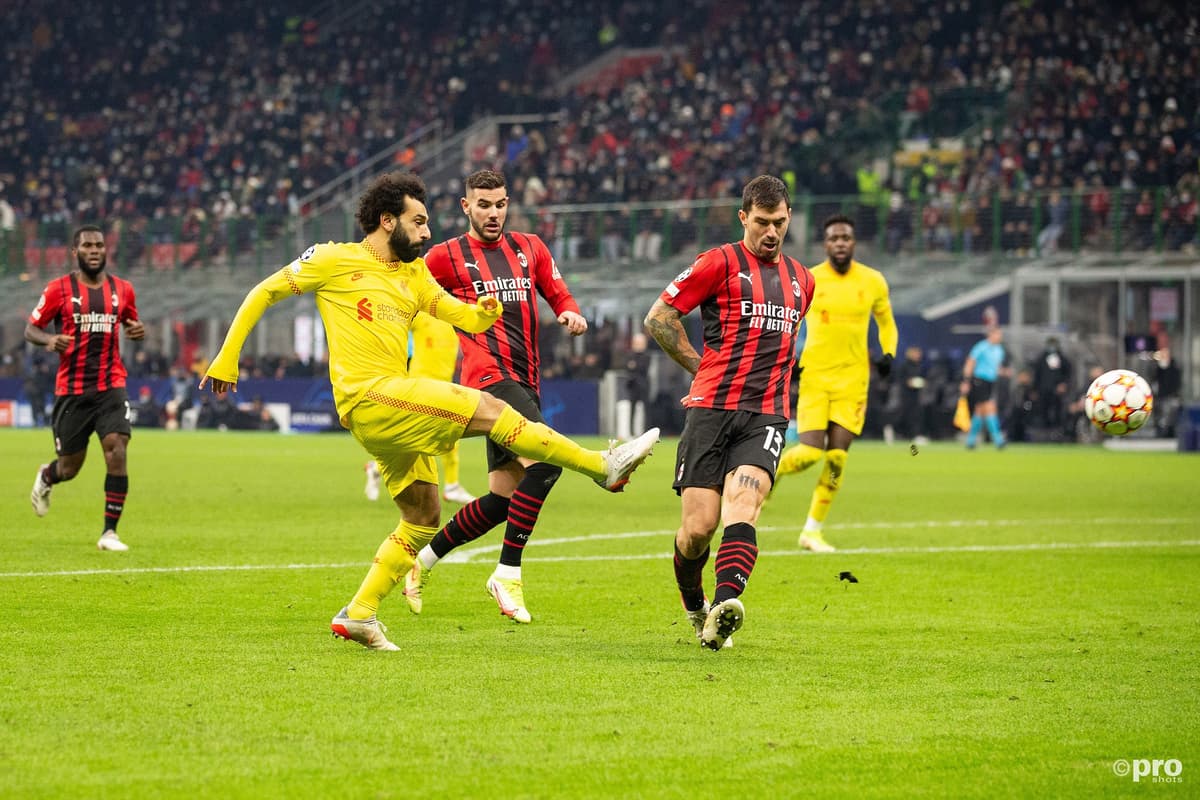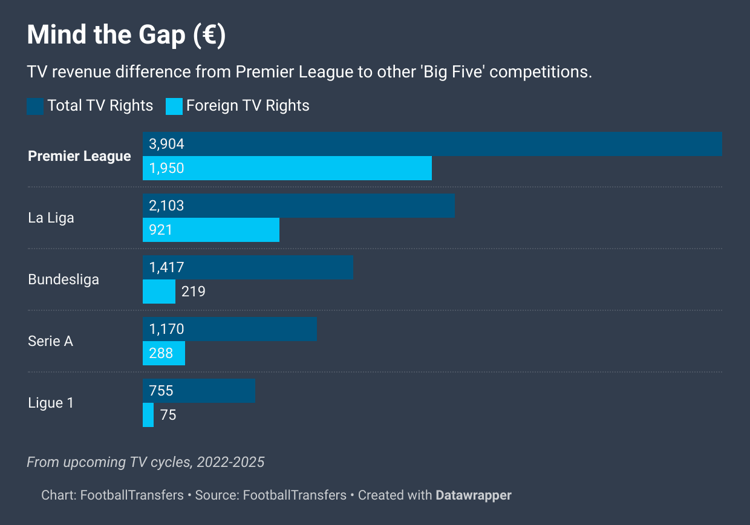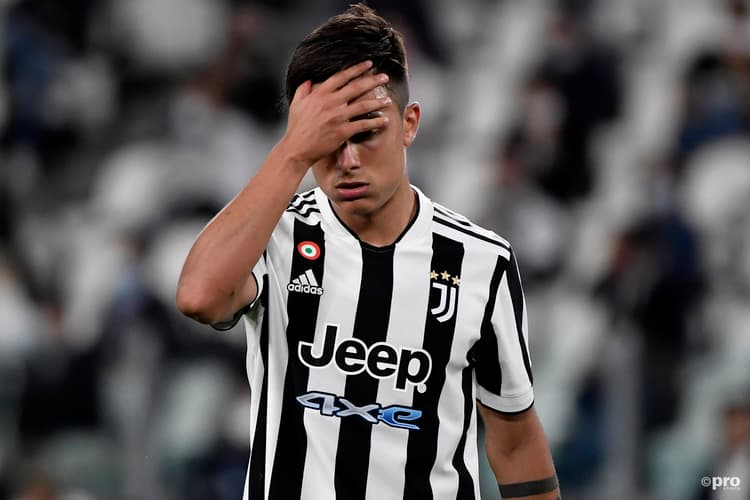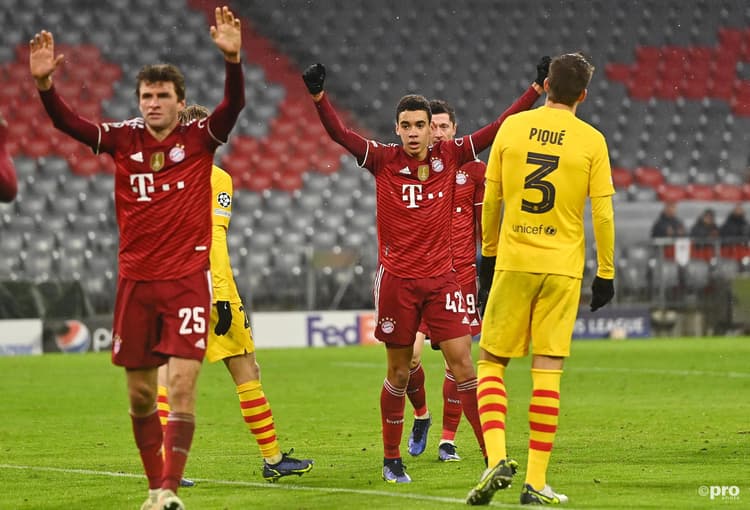- 27 February
- 111K+ views
Five reasons why Premier League will dominate European football for years

The victory of Liverpool's reserves at San Siro in the Champions League this week against a poor Milan side has once again raised questions about the competitiveness of Europe's top teams.
But while in the past this has been a spurious argument, in the post-pandemic world we have witnessed the biggest power shift in European football for well over a decade.
The English clubs now have all the wealth, and all the power. How did we get to this point?
1. Strength of foreign deals
As the other members of the ‘Big Five’ renegotiated TV deals downwards post-pandemic, The Premier League’s brand was strong enough to ensure a slight increase as a result of a continually hungry foreign TV market which craves these matches and these teams.
The gap between Premier League in #1 and Ligue 1 is stark and now completely unbridgeable. The Premier League will earn €1.95 billion across the next three years of the cycle, while Ligue 1 will earn a paltry €75m in that same period. That’s 30 times as much. Ligue 1 will, even more so than it currently is, be a glorified feeder league to England.

2. Collapse of domestic deals for other Big Five leagues
The Premier League were able to negotiate a small rebate back to the TV broadcasters in the UK during the pandemic, and then agree a like-for-like extension of the domestic TV deal through 2025. The same cannot be said of the other leagues.
In France, the Mediapro contract, which looked to double Ligue 1’s revenue, collapsed meaning a hasty deal had to be arranged with Amazon and clubs went from a potential €1.1bn revenue deal down to just over half of that. It could take French football years to recover financially.
In Italy, the domestic deal had to be renegotiated at a 9% reduction on the previous deal, while the Bundesliga was also required to negotiate downwards. La Liga’s rights cycle renews in December - it will be interesting to see what their new deal could look like.
3. A change in distribution for foreign TV revenue
There have been numerous protections put in place to ensure that the distribution of revenue among Premier League clubs remains as broadly fair as possible.
A standard payment is provided to all clubs, while there’s a distinct distribution based on how often a team appears on TV or their final position in the league table. The teams at the top earn more than the ones at the bottom, but it’s all relative.

But there’s less protections such as these in the foreign deals. The exact distributions aren’t released for the new foreign agreements but the old system had an even distribution that has now been replaced by a position-based system.
This could result in a €45m swing from top to bottom in favour of the more successful clubs, increasing the gap within the Premier League itself
4. The Super League, infighting and a state of disarray
In Spain, the recently-signed CVC deal could result in legal action from Barcelona and Real Madrid, such is their dissatisfaction with the terms of the agreement.
It’s threatening to tear the league apart and it does nothing to add any intrinsic value.

Italy have had numerous broadcasting problems with partner DAZN, while leading side Juventus continue to peddle the barely-alive Super League project. Bayern continue to suck the very competition out of the Bundesliga, as they steamroller all around them and compromise the very value of the league they compete in.
And Ligue 1 is represented by PSG as the aristocracy versus the mere peasants around them.
While the Premier League rolls on, everyone else around them weakens.
5. The farce of 2024 and the Champions League restructure
The restructuring of the Champions League TV-rights post 2024 was long considered to be a key point in terms of where European football was to go next.
But post pandemic it now feels like a total waste of time. While Uefa ‘shook things up’ by adding more matches that no-one asked for, to ensure what is likely to be a modest broadcasting increase in a futile attempt to offset Super League aspirations, the Premier League threatens to make the full competition pointless.

Their own power makes them the de facto Super League, their wealth so considerable that they have the monopoly over the transfer market and can take advantage of the clear weakness of the European leagues around them. They have the potential to dominate this competition to such an extent that its integrity, and general meaning, disintegrates.
Make no mistake. We are at a pivotal moment in the future of European football, the evolution of the transfer market, and how competitions develop. And English football is in prime position to shape all of it, for better or, likely, worse.










